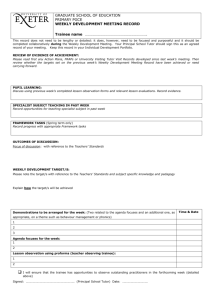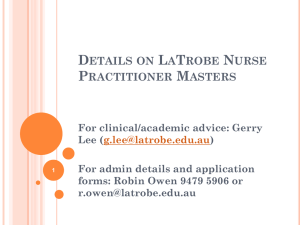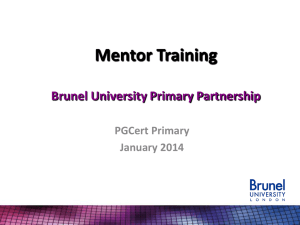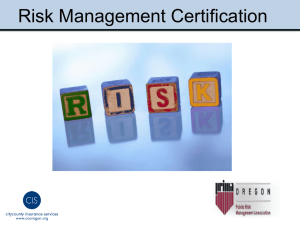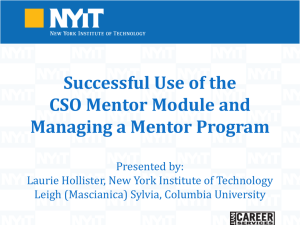4 Plan and teach well structured lessons
advertisement
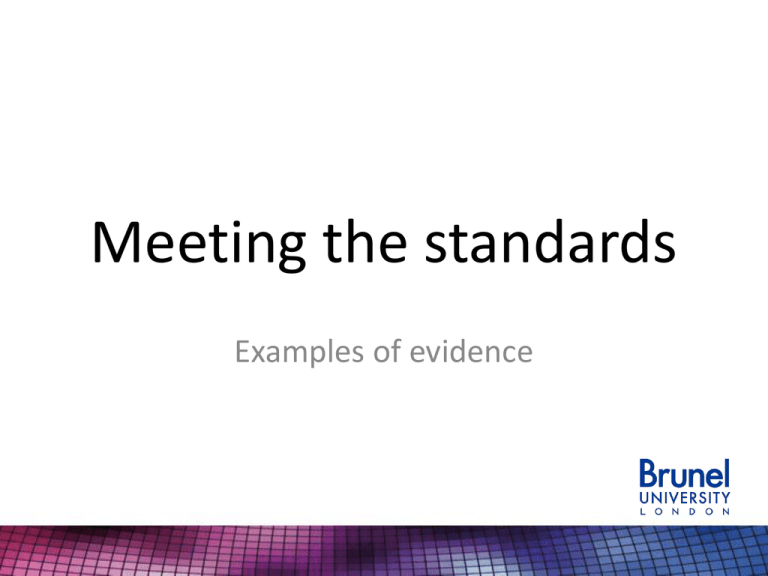
Meeting the standards Examples of evidence Meeting the Standards • Make sure that you are familiar with the Standards • Can you demonstrate that you have achieved them? • Which Standards do you need to develop? • These are your responsibility Basic principles • Try not to use the same lesson observation sheet too many times for different sources of evidence • Citing different observers will give a wider opinion of your teaching • Policies must be highlighted/annotated to show you have read them • Do not forget your own evaluations of your teaching • Finally, use your imagination. You will be surprised what you can use when you think about it 1 Set high expectations which inspire, motivate and challenge pupils • Lesson observation – Constructive relationships with children – Positive role model • Targets set/achieved for children (tracking sheets from own classes) • Health and safety sheet for a trip to a visit to the zoo (out of school contexts) 2 Promote good progress and outcomes by pupils • Lesson observation • Lesson plan (plenaries – assessing learning at the end of the lesson) • INA assignment • INSET attended (AfL, data use in schools) • School marking policy • Weekly training sheets • Using tracking data from own classes 3 Demonstrate good subject and curriculum knowledge • • • • • • Lesson observation (self-produced lesson w/s) INA assignment University lectures University audits (e.g. phonics, science quizzes) Skills tests (confirmatory letter from TA) INSET (using IWB) 4 Plan and teach well structured lessons • Lesson observation – Recap previous work – Cross references to other Standards concerning assessment • Lesson plan – Children’s use of ICT in lessons – Learning materials you have designed – Homework set • Medium term plan (especially one you have helped create) 4 Plan and teach well structured lessons (CONT.) • Examples of children’s homework (scanned pupils' work) • Photocopied child’s homework diary • School homework policy • Weekly training sheets • Mark book with levels from previous topics 5 Adapt teaching to respond to the strengths and needs of all pupils • Lesson observation/plan (e.g. food diary with cultural differentiation) • letter to SENCO telling her about a problem child • INA assignment • Agenda from an INSET session • Class teacher expectations (policy document) • SEN code of practice for the school 6 Make accurate and productive use of assessment • Lesson observation (differentiated tasks and materials) • Weekly training sheets • Moderation meeting • Mark book • Tracking records • Assessment assignment, • INSET attended 6 Make accurate and productive use of assessment (CONT.) • INA assignment • School marking policy 7 Manage behaviour effectively to ensure a good and safe learning environment • • • • Lesson observation Lesson plan (TA directions) Weekly training sheets Ground rules sheet given to children 8 Fulfil wider professional responsibilities • Lesson observation – Good communication skills – Liaison with TA and class teacher • Weekly training sheets • Statement from mentor about attending parent's evening, • Letter/Risk assessment for a school trip • Evidence of team teaching 8 Fulfil wider professional responsibilities (CONT.) • INSET attended • Record of meeting with PCM or headteacher Mentors and link tutors • Mentors will observe you teaching, using Brunel template, once a week • White copy → trainee • Green copy → link tutor • Pink copy → mentor • Link tutors will usually make two visits during SSE1. Their role is to: – – – – Review progress Set appropriate targets Assess trainee with mentor Moderate across the Partnership Weekly Training Sheet (p.38) • Brief report to summarise training experience • Complete prior to weekly meeting with mentor • Reflect on this training and address targets • Example Weekly training sheet (handbook p.168) Profile of Progress • Assessment point three weeks into each SSE and at the end of each SSE • Prior to this, you need to complete the self-assessment section • Helps to identify areas of strength and those to develop in the remaining weeks • Meet with mentor to discuss and mentor will complete relevant section • Complete – Targets – Strengths and distinctiveness • If there are areas of concern, your mentor will contact your link tutor and complete an action plan to support you in meeting the Standards Progress towards QTS standards (3 strands) Amber light Green light Satisfactory Unsatisfactory progress Cause for concern has been raised by the school at the interim point. Meeting between class teacher and/ or Link-tutor followed by meeting with student. Action plan drawn up with time limits. Review progress against action plan targets. Proceed with course Green light Red light Satisfactory Unsatisfactory progress made Proceed with course N.B. A ‘cause for concern’ can be triggered at any point during your training. See PG Cert regulations for further guidance. These are available on Blackboard. This flowchart will be discussed during your preparation lecture. 1. Formal letter from course leader confirming that you are not making satisfactory progress towards meeting the Standards despite support. 2. Exam Board meeting to determine the next stage through formal University Procedures. 3. Letter to Trainee notifying him/her of Exam Board decision. End of Block School Experience • Joint assessment against the standards • Reflective Statement (self-evaluation)- around 500 words (p.158) • ICT audit (p.159) • Evaluation of Placement (p.161) • Phonics tracker (p. 154) • Keep copies!! You will be required to provide your personal tutor with copies during debriefing tutorials and copies will be in your Profile of Professional Development Learn from past students • Be enthusiastic and committed and you will earn the respect of the staff • Teachers are very busy people - be sensitive to when you ask for their time • Be reasonably self critical and accept advice from experienced staff • Use your initiative and be pro-active. Teachers will not have all the answers and you have a degree of responsibility yourself • Ensure that you abide by the school and University rules of confidentiality and expectations (data protection- pupil names (assignments); photographs- seek permission from the school; do not discuss the school or staff inappropriately) • Keep referring to the standards to ensure that you are covering all of them You are not alone!! • Discussion board on U-Link • Please pass on your mentor’s email address for regular email updates • Natalie will be available until 7pm every Tuesday • Teachers’ Fair Good Luck and Enjoy!!
